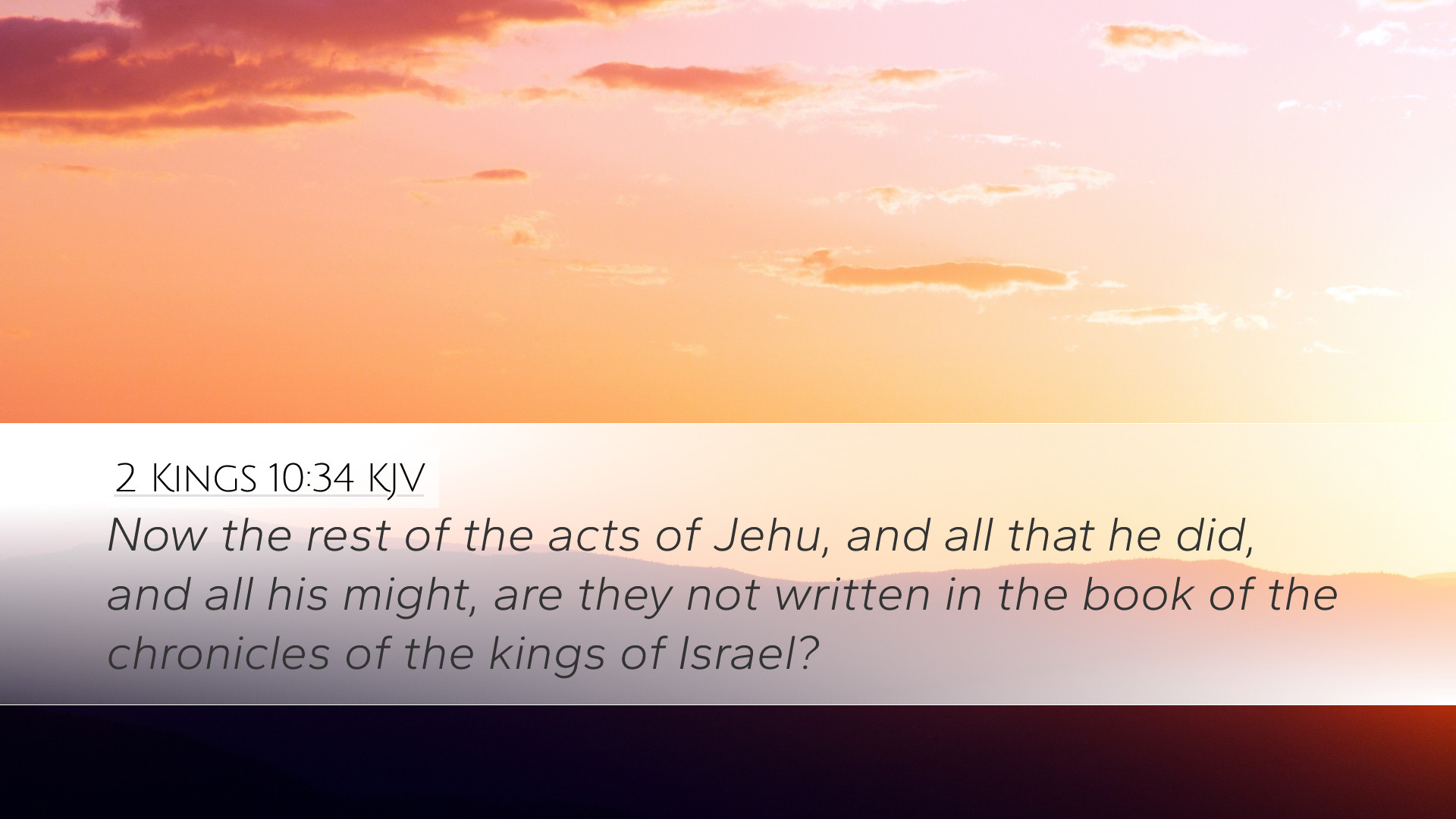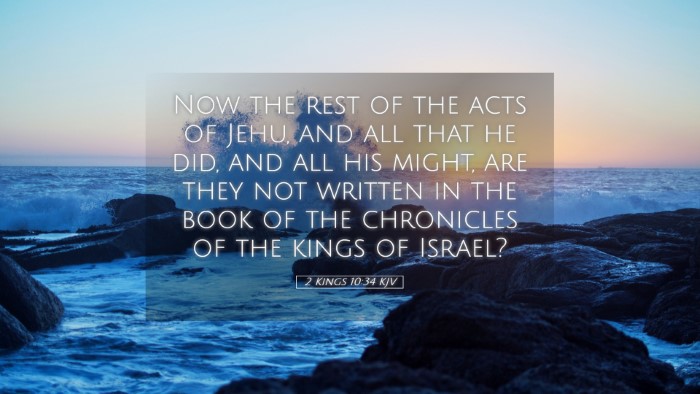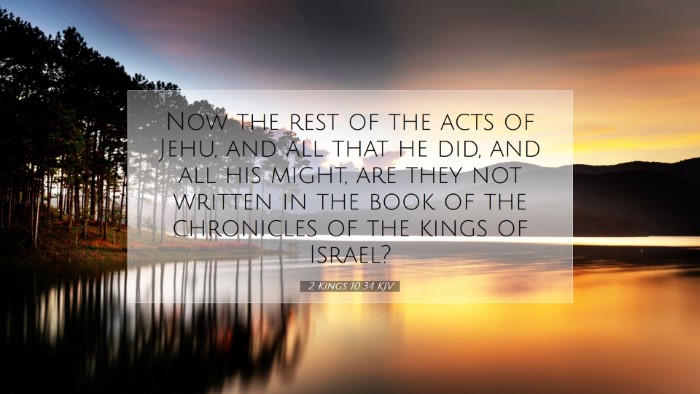Commentary on 2 Kings 10:34
Verse: "Now the rest of the acts of Jehu, and all that he did, and all his might, are they not written in the book of the chronicles of the kings of Israel?"
Contextual Overview
This verse serves as a closing statement regarding the reign of Jehu, one of the more controversial kings of Israel. After assassinating King Joram and exterminating the house of Ahab, Jehu is noted for his zeal in rooting out Baal worship. This commentary delves into the implications of Jehu's actions, the nature of his reign, and the historical context surrounding his legacy.
Historical Context
The book of 2 Kings provides a historical narrative focusing on the divided monarchy of Israel and Judah. Jehu's rise to power was marked by significant bloodshed, and he is characterized as a man who acted decisively and violently. This period was critical for Israel as it faced external threats and internal corruption from idolatry.
Theological Insights
Jehu’s reign illustrates the complexities of divine judgment and human agency. While he was an instrument of God’s wrath against the house of Ahab, his methods raise questions about righteousness and morality in leadership.
Divine Judgment and Human Responsibility
Jehu was chosen by God to carry out judgment against the house of Ahab (2 Kings 9:6-10). This act serves as a reminder of the sovereignty of God in utilizing human rulers to fulfill divine purposes. However, as noted by Matthew Henry, Jehu's success was accompanied by a lack of true devotion to Yahweh, demonstrating that divine appointment does not equate to divine approval of all actions.
Jehu's Zeal and Failure
Jehu’s zeal for the Lord can be seen in his vigorous campaign against Baal worship. However, he failed to fully eradicate the worship of golden calves established in Bethel and Dan. Albert Barnes comments on this duality, emphasizing that while Jehu enacted God’s judgment, his incomplete reforms showed a significant failure in leading the people back to true worship.
Reflections on Legacy
The mention of the "book of the chronicles of the kings of Israel" highlights the importance of historical record-keeping in Israel’s religious and political life. This book served as a divine record of each king’s reign and their fidelity to God’s covenant.
Human Acts Documented
Adam Clarke posits that the deeds of rulers are critical in understanding God’s overarching plan for humanity. In Jehu's case, while he performed mighty acts, they are measured not only by their success against enemies but also by their fidelity to God. Records of such acts serve not just historical purposes but spiritual lessons for future generations.
Lessons for Contemporary Faith
The life of Jehu can be a poignant lesson for modern-day believers about the nature of leadership and faithfulness. While God can use anyone to accomplish His will, true faithfulness goes beyond mere actions to the heart's intent and alignment with God's commandments.
Commitment to Righteousness
Pastors and theologians can draw upon this story to teach the importance of holistic devotion to God. A faithful leader is one who not only confronts evil but also actively leads their people toward righteousness and integrity.
Historical Integrity in Leadership
Maintaining integrity in historical record-keeping is crucial for truthfulness and accountability in leadership. Jehu's narrative reminds leaders that their actions, both good and bad, will ultimately be recorded and may outlast their own lifetimes.
Concluding Thoughts
In summary, 2 Kings 10:34 encapsulates a complex portrait of Jehu’s kingship, blending themes of divine judgment, human action, and the importance of leading a life aligned with God's purpose. For scholars and students of the Bible, understanding these themes enriches the biblical narrative and highlights the intricate relationship between God’s sovereignty and human action.
Further Study Suggestions
- Examine the role of prophets during Jehu’s reign.
- Compare Jehu’s reign with that of previous and subsequent kings of Israel.
- Discuss the implications of partial obedience in the context of leadership.


